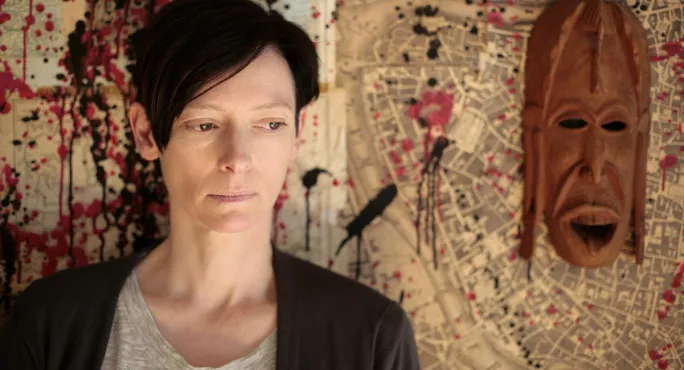- Home
- Tilda Swinton sought government cash for experimental school
Tilda Swinton sought government cash for experimental school

An all-through school co-founded by Oscar-winning actress Tilda Swinton - where pupils start their formal education at age 6 and sit no exams - appealed to the Scottish government to fund it to the tune of more than half a million pounds per year.
A Tes Scotland freedom of information request has revealed that Ms Swinton met with education secretary John Swinney to ask him to back the experimental approach to education at Drumduan School in Moray, which her two children formerly attended.
The meeting came after Mr Swinney was sent a proposal from the school in Forres in the North-east of Scotland - via local MSP Richard Lochhead - suggesting that it should receive £600,000 of government funding every year for three years.
The school, whose website says it is “inspired by the work of Rudolf Steiner”, argued that the funding would allow it to remove its fees, which were “a barrier to entry for low-income families”. It said the fees prevented the school from being “truly inclusive and representative of Scottish society”, adding that the model that resulted would then be “scalable across Scotland”.
The proposal, however, was ultimately knocked back by Mr Swinney.
Mr Swinney said it would be “a very significant change” for the government to step in to fund the school and that there were no details in the proposal to suggest “why this was appropriate for this school and not other independent schools”.
He added that it was necessary that the government invested its “limited public resources in local authority schools”.
Mr Swinney said: “I know that Drumduan School and its young people are studying an innovative and interesting curriculum, and am delighted that some pupils are succeeding in the school who have struggled in other settings.
“Where the school has developed new approaches to meeting particular needs, I hope that it may be able to work with Education Scotland and the other schools in the area to showcase and spread good practice.
“However, it is necessary that we invest our limited public resources in local authority schools.”
The exchange between Drumduan School and Mr Swinney came to light through a Tes Scotland request under freedom-of-information legislation. Media reports in January previously stated that Ms Swinton had appealed to the Scottish government to save the school.
The school first made its pitch for government funding in December 2016, with a meeting taking place between Ms Swinton and Mr Swinney in February 2017 when he was visiting the Glasgow School of Art creative campus near Forres.
Ahead of the meeting, however, the FOI response shows that Mr Swinney stressed that he was not in a position “to make any funding offer to them at this time” and an email sent the following day reveals that “funding was not discussed beyond Drumduan saying ‘we are a fee-paying school but do not want to be’”.
Instead, according to the email, the conversation with Ms Swinton focused on the Drumduan curriculum, mental health and “the challenges of getting students with no exam results into university”.
Four months later, in June, when the governance review was concluded, Mr Swinney wrote to Mr Lochhead to say the government would not be able to fund the school.
Drumduan School launched in 2013 “as a pioneering single class looking for a progressive secondary-level curriculum”. Today, the school is believed to have about 80 pupils aged 3-18 and commands fees of up to £8,500 per year.
However, in its funding pitch to the Scottish government, the school said it was reliant on “private patronage funding” to cover its running costs, which was “not a long-term sustainable model, nor one that is workable at a national level”.
The proposal continued: “We propose therefore that the Scottish government funds Drumduan School for a period of three years at a level of £600,000 per year to enable us to remove the current fee-paying system. The resultant model will be scalable across Scotland and will be as highly effective in closing the attainment gap nationally, as it has been for us locally.”
According to the papers sent to Mr Swinney, formal education does not begin at Drumduan School until age 6; homework is introduced gradually from age 12, “allowing pupils to pursue their own interests at the end of the school day”; and pupils do not sit exams, and instead compile “high-quality portfolios”.
The papers continued: “Out of our first graduating year, a significant number of our students are progressing on to university and college without exams. It is important for parents to understand that universities and colleges already accept mature students and overseas students on the basis of interview and onsite assessments, and more and more of these institutions are recognising that the calibre of the student can often be a more reliable guide to long-term success than a set of paper qualifications.”
Keep reading for just £1 per month
You've reached your limit of free articles this month. Subscribe for £1 per month for three months and get:
- Unlimited access to all Tes magazine content
- Exclusive subscriber-only stories
- Award-winning email newsletters



